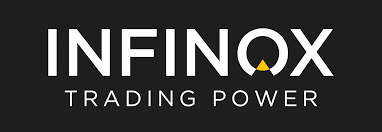The Managing Director, Infinox, an online trading partner now available in Africa to empower traders in Forex, shares, commodities and other financial instruments trade, Mr. Jay Mawji, has advised online traders on the increasing need to safeguard their online trading from prowling scammers as they intensify their efforts to defraud traders.
Mawji explained that the warning had become imperative as the rise of the digital age had resulted in an information overload and often “a lot of this information is made up of unqualified opinions and regurgitated statements.
“As technology has grown, scammers have evolved to take advantage of digital opportunities, and as the number of online traders is expected to continue growing, it is vital for aspiring online traders to safeguard themselves when it comes to trading”, he added.
Mawji explained that many would-be traders were concerned about the security and safety of personal funds and data, and were therefore hesitant to start trading.
He said: “As such, it is vital for potential traders to work with an established, reputable, and regulated broker who will monitor the activities of its clients, partners and stakeholders to make sure they are operating within the regulatory guidelines.
“The implementation of stricter regulations has been a game changer, and regulated firms put their customers first and ensure they are running their companies in a sustainable way”, Mawji stressed.
On finding the right broker, the online trading expert said it was crucial to conduct research on the brokerage and the regulations that they abide by, adding that the best place to do so would be the Securities Commission of The Bahamas (SCB), who keeps an up-to-date register of all firms and their business activities.
Secondly, he pointed out that traders must recognise the investment risk versus reward, and take into account that it should be a balanced approach between the two, while being aware that if it is too good to be true, it usually is.
The online trade expert said: “Be wary of schemes that are too easy to open an account, too easy to deposit, too easy to trade, and too easy to make money. This is a clear sign of limited regulations and processes.
“It is also important to question that if your investment is too low, how is the brokerage making money? If this is the case, there is often more at play that we may initially realise,” he cautioned.
Mawji further explained that the broker’s physical location also remained crucial, citing that although the business is one that is run online, firms that have a physical presence demonstrate a commitment to their business, their teams, and ultimately to their clients.
He hinted that it was for this reason that INFINOX will soon offer clients on-the-ground presence in South Africa – an extension of its London-based headquarters.
Commenting on the potential risks associated with online trading, he pointed out that mitigating such risks remained key as some traders may still fall victim due to more-elaborate schemes.
According to him, apart from never dealing with unregulated brokers, traders should take their time when it comes to deciding which broker to partner with, and be familiar with their services.
Most importantly, Mawji advised aspiring traders to ask a friend for advice as they will most often only have their best interests at heart and reveal any potential risks they may be aware of to them.
He expatiated: “There are unethical practices in all industries, and CFD trading is no different, but by having the right monitoring and supervisory policies in place, and by working with regulators, will grant the industry and its traders the peace of mind in knowing that there is no easy way for someone to tarnish the reputation of our industry.”






